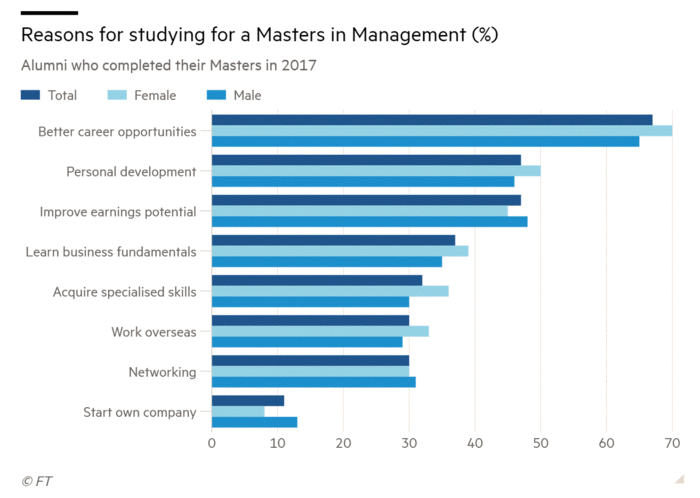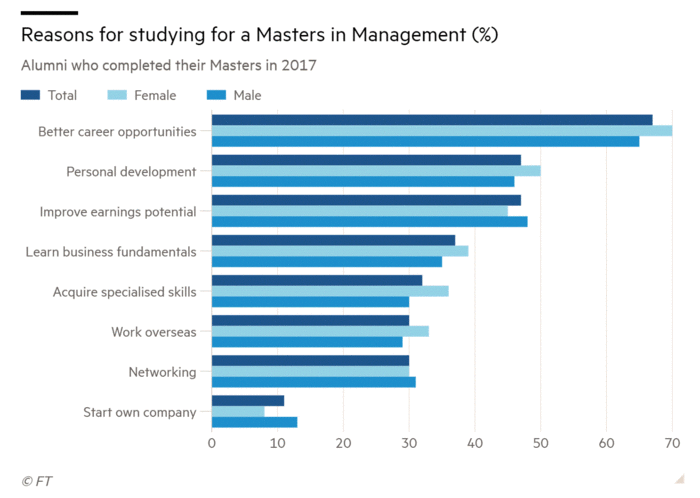Welcome to Business School Briefing. We offer you insights from Andrew Hill and Jonathan Moules, and the pick of top stories being read in business schools. Edited by Wai Kwen Chan and Andrew Jack.
Noticeboard
-
Coronavirus insights. Are you aged 16-30? Please answer our short questionnaire here to help our reporting by telling us how you have been affected by the pandemic and what you think of your government’s response.
-
Help us redesign our rankings. We are seeking help from prospective business students as we develop new digital tools and content to assist readers make the best educational choices. If you are willing to take part in our research, please complete this survey, which should only take 10 minutes.
-
FT NextGen is back and is offering FREE passes for students. This year, join us virtually for more exciting speakers, tackling issues the next generation is facing in the post-corona world. From how to invest in property to dating during coronavirus, join us to hear from the FT’s brightest young editors and experience NextGen from the comfort of your own home. Register today for free.
-
Help us to make this Business School Briefing newsletter more helpful to you. Please answer our short questionnaire here.
Data line
With the recent publication of the Masters in Management 2020 ranking, we analysed data from alumni to understand their aims for studying this Masters (MiM) and if they have achieved their goals. Better career opportunities was the main reason among alumni from the 2017 cohort and the percentage was slightly higher among women, write Leo Cremonezi and Sam Stephens.
Personal development and to improve earnings are also important reasons for doing a MiM. Starting a company is not the main reason for studying for a Masters, but the levels of achievement are higher among women.
Andrew Hill’s management challenge
Becoming an expert takes years and, as I explain in my column this week, it can require an early dedication to mind-numbing, repetitive work as an apprentice. Miss out that stage and you may never achieve mastery.
But some of the important repetitive work is now outsourced to machines — perhaps rightly. So for my management challenge this week, I’d like to know how you would use technology to help entry-level auditors learn how to become expert auditors, junior lawyers to become senior partners, or apprentice plumbers and plasterers to acquire vital skills. Send your ideas about how computers and trainees can work together to [email protected].
In further reading this week, here’s the recent report from the Test of Corporate Purpose (TCP) initiative, which has been looking at how avowedly purpose-led companies responded to the coronavirus and inequality crises. For a summary of the report, read Peter Goodman’s news story in the New York Times, whose headline tells the story: “Stakeholder capitalism gets a report card. It’s not good.”
Jonathan Moules’ business school news
Business schools need to find new revenue sources. Schools in the UK think they have hit upon one in the form of apprenticeships. This week I broke the story that JPMorgan will pay the University of Exeter Business School to teach apprentice investment bankers, taking day release from the M&A desks in London to study for a degree in applied finance. The bank already employs the school to teach other degree courses, including 68 senior executives studying for an MBA.
Such closer ties between the business world and business schools are being driven in the UK by government policy, which requires companies to set aside money for workplace training on a use it or lose it basis. However, it has shown how the corporate and academic worlds can be encouraged to work in partnership in new ways to the benefit of both.
On the theme of the future of business education, I recommend this piece on the merits of online teaching by Sean Gallagher, of Northeastern University in the Harvard Business Review, and Jason Palmer. The sudden shift of campus teaching to Zoom lectures and online study has been a shock for many students and professors, but amid the disruption are the seeds of ideas that will create new methods to deliver lifelong learning.
How good is your knowledge of the news?
Answer our 10 question quiz.
Top business school reads
What happens if a candidate must withdraw from a presidential election? Trump’s coronavirus diagnosis adds volatility to a turbulent race for the White House.
Brussels launches legal action against UK over Brexit deal breach Von der Leyen says UK is breaking ‘good faith’ obligations to the EU.
Whistleblower warned EY of Wirecard fraud four years before collapse Employee at payments group’s longtime auditor flagged suspicious accounting and attempted bribery in 2016.








More Stories
Changing Business Strategies 2020
Starting Your Own Hat Wear Line – 7 Things To Know
Telecom POTS Line Project Risk Management